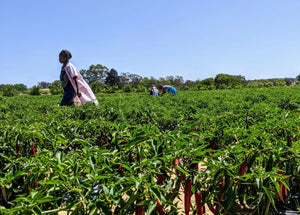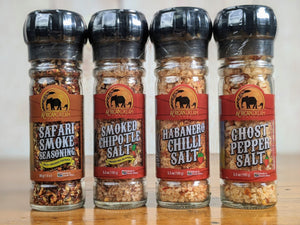The Importance of Fair Trade Practices
Feb 26, 2021
You’ve probably already run into the term “fair trade” while browsing fresh produce or grabbing a coffee at your local cafe. This year, industry experts expect ethically produced, sustainable products to claim center stage. And frankly, we’re here for it.
Socially conscious food products are huge right now. But ethical consumerism isn’t a passing fad, it’s a global movement that’s rapidly redefining purchase habits and restructuring entire industries.

When it comes to ethical consumption, fair trade practices are a big piece of the puzzle. But despite its buzzword status, you might still be fuzzy on what “fair trade” really means.
What are fair trade practices?

There’s no curveball with this one; fair trade is pretty much what it sounds like. It’s about putting an end to the rampant exploitation and social destruction happening at the hands of unethical companies. In general, the term refers to the implementation of business practices and pay structures that are fair, transparent and socially conscious.
Want specifics? We’re talking about liveable wages, sustainable production practices, safe working conditions and other social and environmental protections. Based on the conviction that there really is such a thing as a win-win business model, fair trade brands leverage their commercial activity to positively impact developing countries and economically disadvantaged communities.
African Dream Food, for example, implements fair trade practices by paying a fair price for the work of our production companies in South Africa. In sourcing our ingredients directly from small local farms, we also seek to build regional economies and bring more revenue into the area. In short, our goal isn’t just to churn out a product—we’re striving to leverage our business in order to positively impact the African economy.
Why fair trade practises matter
It’s not exactly a secret: there’s a lot of shady practices happening in the business world today. Big unethical companies are all about increasing profit margins, often at the expense of impoverished communities and developing countries.

They’d like us to turn a blind eye to it, but the tragic truth is that child labor, dangerous working conditions, inhumane wages and other forms of exploitation are all too common. Thankfully, fair trade companies exist to give consumers an ethical alternative.
When you choose to shop exclusively with socially conscious fair trade companies, you’re investing in brands that create opportunities for marginalized producers, bring revenue into disadvantaged areas, cultivate empowering working conditions, ensure worker’s rights and respect cultural identity.
The bottom line? Choosing to shop with fair trade brands is the only way to ensure your purchase hasn’t played a role in oppressing another human being. If that makes shopping exclusively with fair trade companies seem like a total no-brainer to you then we’re on the same page.
How to shop ethically
The good news is that fair trade companies aren’t hard to find; there’s more of them each year.
In most cases, fair trade companies like ADF aren’t exactly hush-hush about their ethical business practices. We’re proud of our brand model and the impact it makes, so we’ll shout it from the rooftops whenever we get the chance. To start shopping ethically, seek out companies like ADF that are certified by a fair trade governance body and vocal about their commitment to moral business practices.




